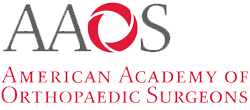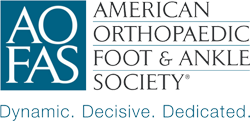Christopher Miller, MD Post-operative Instructions After Foot & Ankle Surgery
Thank you for allowing me to assist in your care. It is a privilege to be able to take care of you. Should you have any questions about your post-operative care feel free to call my office at (617) 732-5322 during business hours and either myself or Brianna Whitehouse, PA-C will address any questions or concerns you may have. If this is an urgent matter at night or on weekends please call 617-667-7000 and ask the page operator to page the covering 1st call orthopaedic physician.
*****These are general guidelines for post-op care and are sufficient for the majority of my patients and surgeries. You specific instructions may differ slightly. You should call my office if you have any questions or concerns.******
Prescription refills or changes cannot be addressed after normal business hours or on weekends.
PAIN CONTROL
- You may or may not have had a nerve block depending on the type of surgery. This will likely wear off later in the evening and it is normal to have increased pain when the nerve block wears off. Please take your prescribed pain medications as directed with food prior to the nerve block wearing off.
- Stay ahead of the pain!
- Narcotic pain medications can cause constipation. Please take a stool softener while taking these and drink plenty of water.
- Please plan ahead! If you are running out of your medication prior to your follow-up appointment please call during business hours with a 2-3 day notice. Prescription refills or changes cannot be addressed after normal business hours or on weekends.
NON-NARCOTIC PAIN CONTROL
- Multi-modal pain control is critical. If you are able to take Tylenol (acetaminophen) I would strongly encourage you to do so according to the instructions on the bottle. Do not take more than 3,000 mg of Tylenol in 24 hours.
- NSAIDs (Advil, Motrin, Aleve, etc) are also excellent for pain control post-operatively. Please check the dosing on the box/bottle. You may take this unless you were treated for a nonunion or have an unrelated medical contraindication.
- Elevation with the operative site above the level of the heart will decrease swelling and improve pain control
- Ice or cold therapy may also be helpful. Do not keep ice or cold directly on the skin and do not use for more than 10-20 minutes to decrease risk of skin injury from the cold. Do NOT use ice when the block is still in effect as you will not know if you are injuring yourself. You may place the ice pack behind your knee if you have a bulky dressing on your foot.
- Every little bit helps. The faster you can come off the narcotic medication the better.
- 90% of my patients do not need narcotics after the first post-operative visit!
- The majority only take narcotics for 1-3 days at most
ACTIVITY
- You will likely have swelling after surgery. Please keep the foot elevated on 3-4 pillows at all times possible. You can apply a dry, covered, ice-bag on top of your dressing or behind your knee for 20 minutes at a time as often as you like.
- Unless instructed otherwise you should not put any weight down on your operated extremity until you come back for your first postoperative visit.
- For most surgeries, you will be instructed to be non-weight bearing for at least the first two weeks until your initial post-op visit. If you are unsure on your weight bearing status, you should stay off of the operative foot and call the office for clarification.
CARE FOR YOUR DRESSING
- You should not remove your hard dressing. I will do so when I see you for your first post-operative visit.
- It is not unusual to have a little bloody staining through your dressing. However please call the office for any concerns.
- Keep your dressing clean and dry. You will have to cover it when you bath or shower. If it gets wet please call the office immediately.
- If the dressing is soft, you may remove it in one week and begin daily dry dressing changes. Keep it covered with dry gauze and ACE when not showering.
PREVENTION OF BLOOD CLOTS
- You have been instructed to take medication in order to help prevent blood clots after surgery. Please take an aspirin 325 mg every day unless you have been specifically prescribed a different medication by me or if you are already taking anticoagulation pre-operatively, in which case please notify my office if you have any questions.. If there is some reason why you cannot take aspirin please notify my office as well.
DRIVING
- While I cannot “clear” you to drive, my recommendation is that you should not drive if you:
- are still taking narcotic pain medications
- have any type of immobilization on your right side
- are unable to fully bear weight without pain on your right side
(the above also apply to the left side if you have a manual transmission (“stick shift”)
- There is no substitute for common sense and safety. If you do not feel safe driving, do not do so. Practice in an empty parking lot prior to driving on the road.
- “Driving is easy. Stopping in an emergency is hard”
WHEN TO CALL:
- Please call the office if you have any questions or concerns regarding your post-operative care. We need to know if things are not going well.
- There is no question that is too small to ask.
- Please make sure you call the office or page the 1st call orthopaedic physician immediately if you are having any of the following problems:
- Fever greater than 101.4
- Increasing pain not controlled on pain medications
- Increasing bloody staining on the dressing
- Chest pain, difficulty breathing, nausea or vomiting
- Significant asymmetric leg swelling
- Cold toes, toes that are not normal color (pink)
- Any other concerning symptoms



